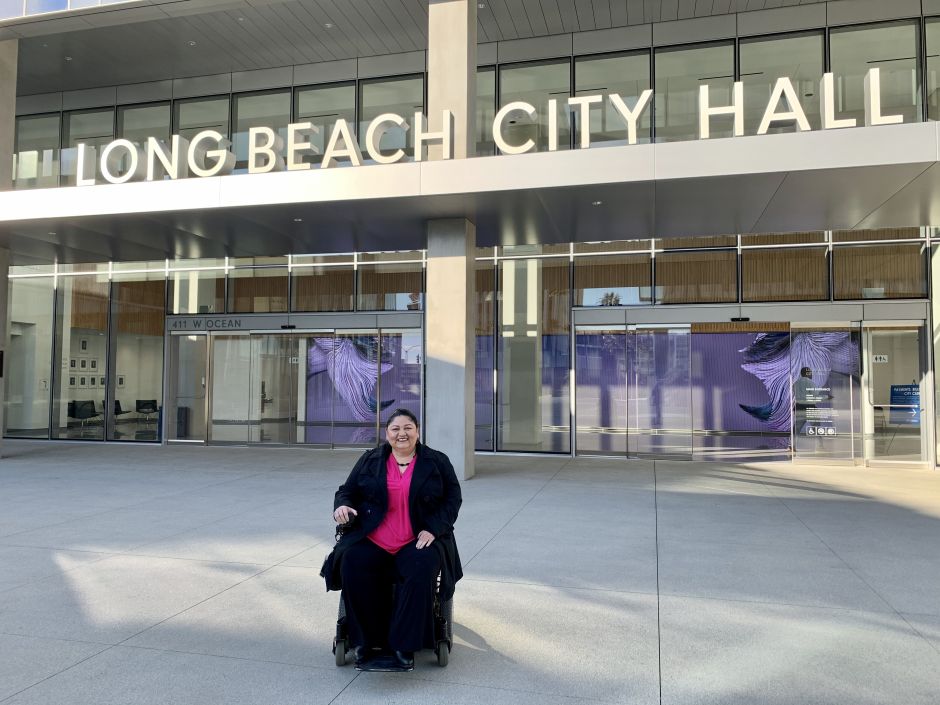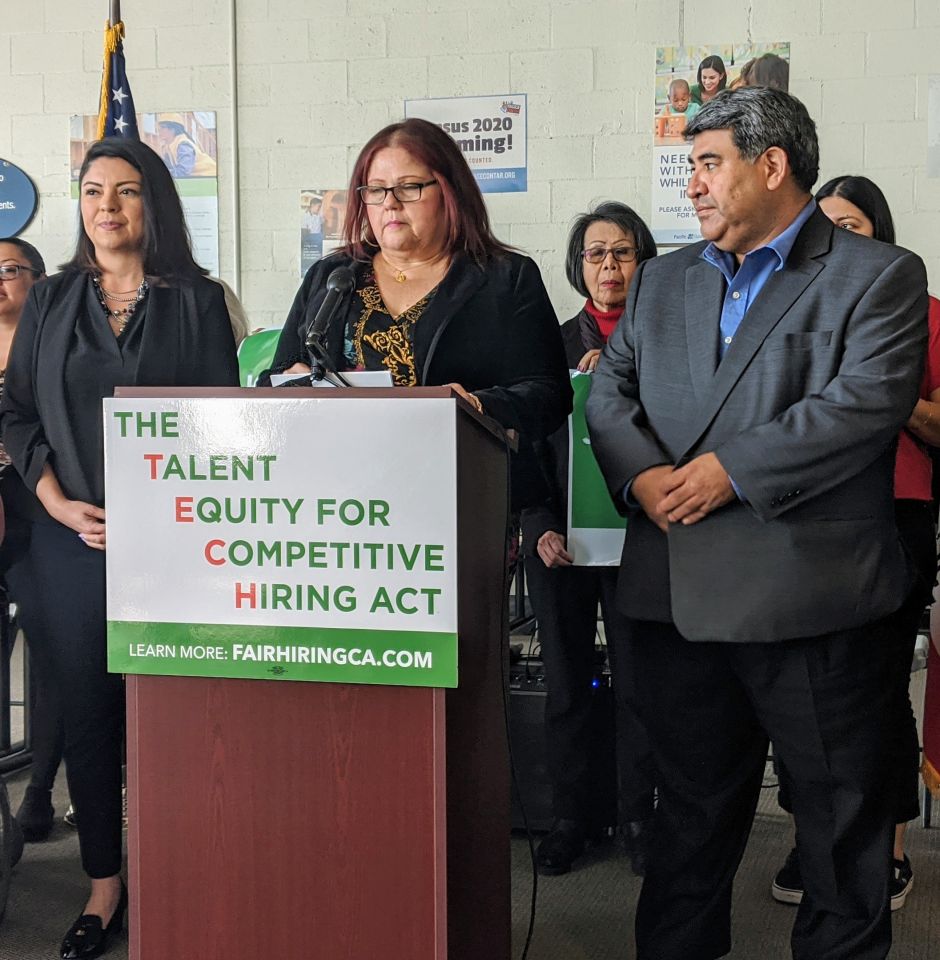The goal is that all qualified job seekers have a fair chance of being hired.
Long Beach City Councilwoman Mary Zendejas knows firsthand the inequality of employment opportunities.
Zendejas, 49, is the first woman in a wheelchair to serve as a councilor for a city across the country. On November 5, 2019, she was elected to represent the first district of the city of Long Beach.
"I also help people prepare for some job, but it seems that, having a disability, even if one has the same qualifications, people always choose other people," Zendejas said Friday morning. “They look at us as an obstacle. It will be the fear of not knowing and that prevents them from giving us the job, giving us that opportunity. ”
Zendejas, of Mexican and American nationality, said that people with disabilities or minorities must work twice as much to get the same opportunity as others.
For this reason, the councilor did not hesitate to support a new bill that tries to prevent inequality in the hiring process and thus be able to generate fairer conditions for qualified candidates.

Bill SB 1241, Fair and Competitive Hiring of Employees (TECH), establishes clear rules for employers who want to innovate in the area of hiring.
This measure allows the use of new technological evaluation tools; The objective is to reduce bias and improve diversity in the workplace.
The authorship of the legislation is shared between Assembly members Reggie Jones-Sawyer SR., Mike A. Gipson and Senators Steven Bradford and Lena Gonzalez.
Senator Gonzalez said Friday at a press conference that the hiring laws in California are based on federal guidelines that were introduced in 1978, and have not been updated since.
"Today we are here to support a common goal, to make sure that all qualified job seekers have a fair chance of being hired," said Gonzalez, who represents Long Beach.
"We cannot let generation after generation lose opportunities for higher wages, upward mobility and stable careers," he continued. "While California is home to one of the most diverse populations in the country, and we are the fifth largest economy, the law does not protect all Californians from discrimination."
Studies have revealed that women and people of color are more likely to go unnoticed in the hiring process, and from 1990 to 2017, Caucasian applicants received, on average, 36% more returns from hiring calls than African-American applicants; and 24% more callbacks than Latino applicants, even with identical resumes.
The senator said that the technology sector, where she used to work, disparities for women and communities of color are even more marked.
"Only 3% of advanced technology employees are African-American, 6% are Hispanic and only 36% are women," Gonzalez said, referring to the high-tech sector in Silicon Valley.
Fighting for future generations
The way some employers restrict employment opportunities, they said, is choosing graduates from prestigious universities or those referred internally to maintain a manageable list. However, these tactics disproportionately exclude minority or low socioeconomic candidates.
The Southeast Community Development Corporation (SCDC), in Bell Gardens, trains youth and adults to become workers in the technology industry.
With the help of Senator Gonzalez, technology centers throughout the district have expanded to continue teaching residents and students to code robotics.
"We recently developed a space for creators and built a multimedia room," said Cesar Zaldivar-Motts, executive director of the SCDC.
"Students are eager to go to college and work in the high tech industry," said Zaldivar-Motts. "However, we can't burst their bubble if they get the necessary education, they get the experience, but they can't get the job."

The executive director said that this legislation is very important for the residents and the future of many students.
Talent wasted by discrimination
Jessica Quintana, executive director of the Long Beach CHA Center, Inc., where the press conference was held, said the center has consistently seen this employment inequality.
"We have students who have gone to universities and have graduated, but the obstacle for all of them is to get a job," Quintana said. "Due to the discrimination that constantly occurs, we have people who are very talented, but do not have access to jobs."
This is one of the reasons why many young people find themselves unemployed or with jobs that fall far short of their talents and abilities, Quintana said.
She added that it is very important that the TECH law be passed as it is critical for the stability and quality of life of people.
In addition, he stressed that, with the high price of income, food and utilities, people are not covering their basic needs.
“When you get depressed and discouraged, that creates health problems. That's why, and for many other reasons, this law is the right thing to promote talented people, ”said Quintana.
Bill SB 1241 was introduced on Friday and it is expected that there will be some resolution for the summer.
The CHA center, Inc., is responsible for training students in technology, medical care, safety, culinary arts, among other careers.









